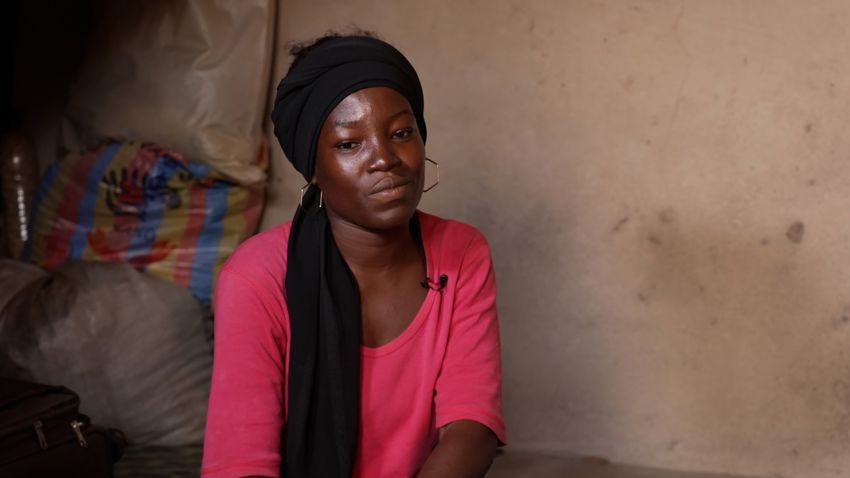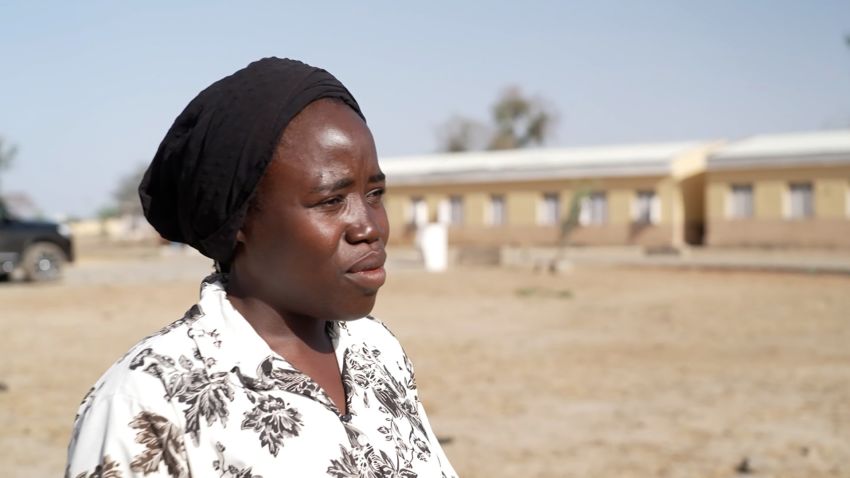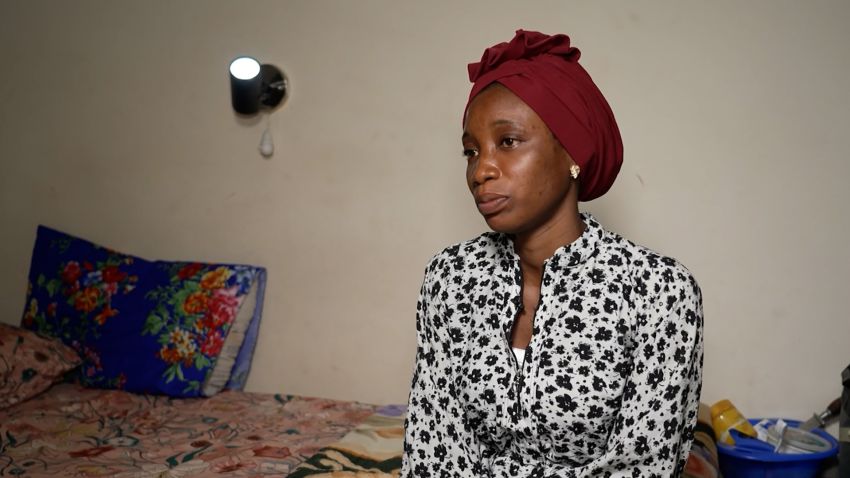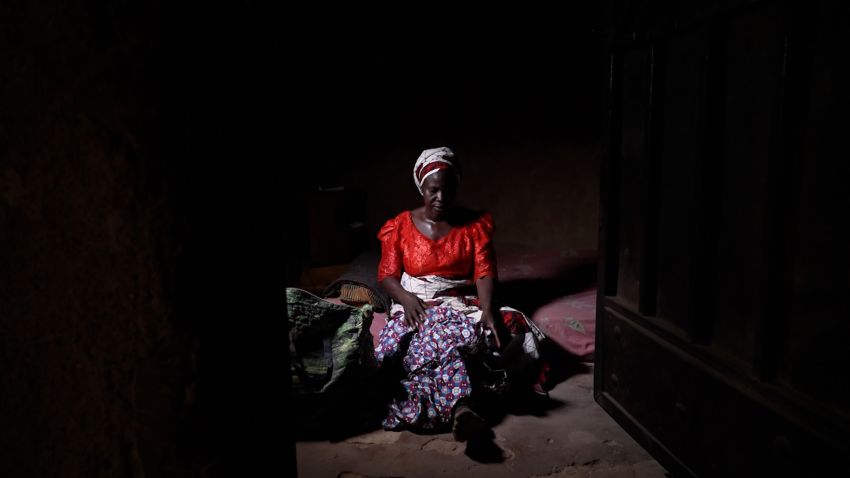Editor’s Note: This story is part of As Equals, CNN’s ongoing series on gender inequality. For information about how the series is funded and more, check out our FAQs.
They were abducted from school and held in the depths of the vast Sambisa forest for years. Punished for daring to seek an education, the girls endured forced marriages, religious coercion and physical violence at the hands of their captors.
Over the last decade, more than 100 of the 276 Chibok schoolgirls taken by terrorist group Boko Haram have since regained their freedom. The fate of 82 remains unknown, according to figures from Amnesty International.
Boko Haram has waged a 15-year insurgency battle in northern Nigeria and has kidnapped thousands of people in that time. But the Chibok girls serve as a potent symbol to the world of hope and resilience.
Near the 10th anniversary of their kidnapping, CNN met survivors at the American University of Nigeria in Yola, Adamawa State. Here the young women have received psychological treatment, and special foundation and vocational courses created to help them obtain qualifications.
Watch the videos below to hear some of their stories.
Raising a Boko Haram daughter
Amina Ali, now 27 years old, was the first Chibok schoolgirl to break free after two years in captivity. She escaped with the man Boko Haram forced her to marry. Together they fled the Sambisa camp, carrying their infant child.
Amina says she has not seen him since their escape in May 2016 when the Nigerian army arrested him. Today, their daughter is 8 years old.
Their daughter (who is not being named to protect her identity,) has already faced societal stigma, labelled a “child of Boko Haram.”
Listen to Amina describe the bullying her daughter has endured.
Amina admits that it is not easy to be a single mom in her circumstances. Yet like many of her fellow survivors, she is pursuing her studies and hopes to become a successful entrepreneur.
“I believe my future is bright,” she says.
Boko Haram robbed her future
Once an ambitious student with dreams of academic achievement, Hauwa Ishaya was 16 when she was kidnapped. She endured three harrowing years in captivity.
She recently travelled with CNN back to Chibok and shared her sadness over the 82 students still missing, whom she referred to as “sisters” during their time in captivity.
Watch as the now 27-year-old revisits the spot where armed militants stormed her boarding school on April 14, 2014.
Hauwa was subjected to physical beatings during her time in captivity and was under pressure to take a Boko Haram husband, which, she says, she adamantly refused. As a result, she instead became a self-described “slave” – attending to her married sisters’ needs and treating wounded Boko Haram fighters.
Despite her tough circumstances, Hauwa says she clung to hope, longing for the day she would be reunited with her family. When that day finally came in May 2017, she says tears flowed freely as she embraced her loved ones.
“I was so happy,” she recalls. “We all cried together.”
Now she is studying communication and multimedia, aspiring to build a career in the media industry someday. But the trauma lingers.
“Sometimes if I start crying, I’ll cry (for) like one week,” she says.
She survived an air raid but lost her leg
Hannatu Stephen, 26, vividly recalls the morning bombs rained down on the Boko Haram enclave she was being held in.
She remembers hearing the hum of the Nigerian helicopters above as they dashed for cover. A few girls were lying next to her; others were by the door. Then the tranquillity of the early morning was shattered by the sound of explosions.
Six of her friends were killed instantly. Hannatu was the sole survivor.
The bomb shattered her left leg, and she says she was taken to a makeshift clinic used to treat injured Boko Haram fighters.
“The Boko Haram put me inside the car and took me to the hospital. When I got there the doctor said there (was) no bone in my leg, and it had to be amputated.”
Hear Hannatu speak in her native Hausa language about the pain of losing her leg.
In all, Hannatu said she spent two years recovering in the hospital and adapting to life with one leg. She eventually received a prosthetic when she was freed in May 2017, but it leaves her in agonizing pain.
Despite these challenges, she remains determined to pursue her studies in business administration. She’s hopeful that with some help, she can achieve her goals.
‘I believe she’s alive’
It is not only the girls kidnapped 10 years ago whose lives have been forever changed. Yana Galang has no idea where her daughter is but clings to her hope that she will one day see her again.
After Rifkatu, then 17, was kidnapped, Yana began a monthly ritual of washing her missing child’s clothes.
Hear why this mother stays ready for her daughter’s return.
Yana says she’s struggled to contain her despair over the years as others kidnapped from the Chibok school with her daughter have returned to their families. The family still lives in Chibok, and the remnants of Rifkatu’s life with them are visible throughout their home.
Yana describes Rifkatu, the fifth of eight children, as a gentle soul, known for her kindness and diligence. Her voice is wracked with emotion as she recalls Rifkatu expertly braiding her hair – a weekly ritual between mother and daughter that Yana longs for once more.
“I miss her so much,” she says softly. “It is hard for me to talk about her. I feel so much pain when I do, and it is only God that can bring me comfort.”




